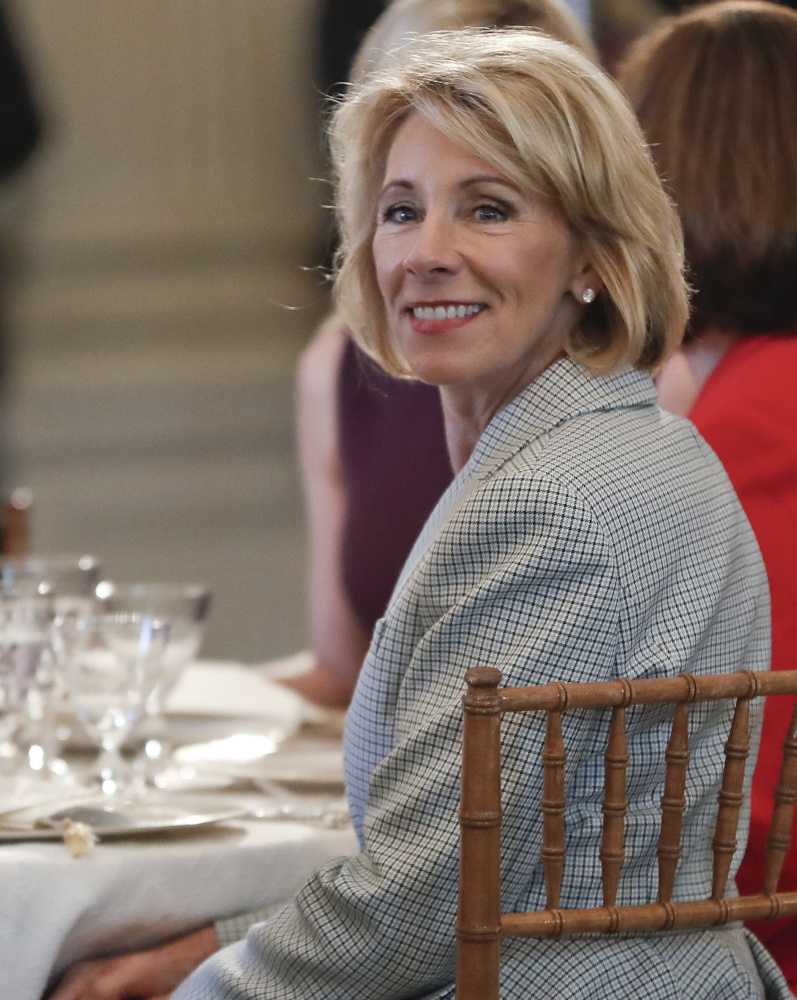WASHINGTON — A House committee this week advanced a bill to renew the District of Columbia’s federally funded vouchers program – the only one like it in the country – raising larger questions about whether the federal government should promote the use of tax dollars for private schools.
The Scholarships for Opportunity and Results Reauthorization Act, known as SOAR, gives federal dollars to low–income Washington students who want to transfer from struggling public schools to a private school. The program, created by Congress in 2004, also provides additional federal dollars to traditional public schools and public charter schools in Washington.
The House Committee on Oversight and Government Reform debated the bill Wednesday and voted Friday to extend the program for five more years. The legislation will next go to the full House for a vote.
The bill represents the first fight over vouchers to play out on a national stage since President Donald Trump, a proponent of education alternatives he calls “school choice,” won the election.
Education Secretary Betsy DeVos is a champion of private school vouchers, and Trump has said he wants to spend $20 billion to help states expand such programs.
The American Federation for Children, an advocacy group founded by DeVos, called the bill “an educational lifeline” for low–income Washington families and said Friday’s vote sends a message that lawmakers consider the program a success.
The Oversight Committee took up the bill, sponsored by Chairman Jason Chaffetz, R–Utah, after debating another Chaffetz proposal that would encourage federal agencies to move out of the nation’s capital.
Chaffetz said vouchers allows low–income students to “attend private schools that might otherwise be beyond their parents’ financial means.”
“The District of Columbia school system has consistently had a host of challenges and certainly rankings near the bottom in terms of its performance,” he said.
Del. Eleanor Holmes Norton, a Democrat and the District of Columbia’s nonvoting representative, argued parents in the city already have “robust” choices, pointing out half of public school students attend charter schools independent from D.C. Public Schools, while 75 percent of DCPS students attend schools outside their neighborhoods and chosen by their parents through a city lottery.
Norton said she opposes vouchers, noting there was no evidence that the program resulted in better academic outcomes for students.
“The D.C. voucher program has failed its central purpose: It has not improved academic achievement, as measured by math and reading tests, and that ought to be the test. The program is therefore patently unnecessary,” she said.
But she said the 1,154 students in the program should be allowed to continue until they graduate from high school.
Democrats offered amendments to require private school voucher programs to obey civil rights laws that protect LGBT students and those with disabilities. The proposed changes failed along party lines in the GOP–controlled committee.
District officials have struggled with how to respond to the bill; while they generally oppose using federal dollars for private schools, they do not want to lose the public and charter school funding tied to the voucher program.
A majority of the D.C. Council urged Republicans to phase out the vouchers.
Copy the Story LinkSend questions/comments to the editors.



Success. Please wait for the page to reload. If the page does not reload within 5 seconds, please refresh the page.
Enter your email and password to access comments.
Hi, to comment on stories you must . This profile is in addition to your subscription and website login.
Already have a commenting profile? .
Invalid username/password.
Please check your email to confirm and complete your registration.
Only subscribers are eligible to post comments. Please subscribe or login first for digital access. Here’s why.
Use the form below to reset your password. When you've submitted your account email, we will send an email with a reset code.